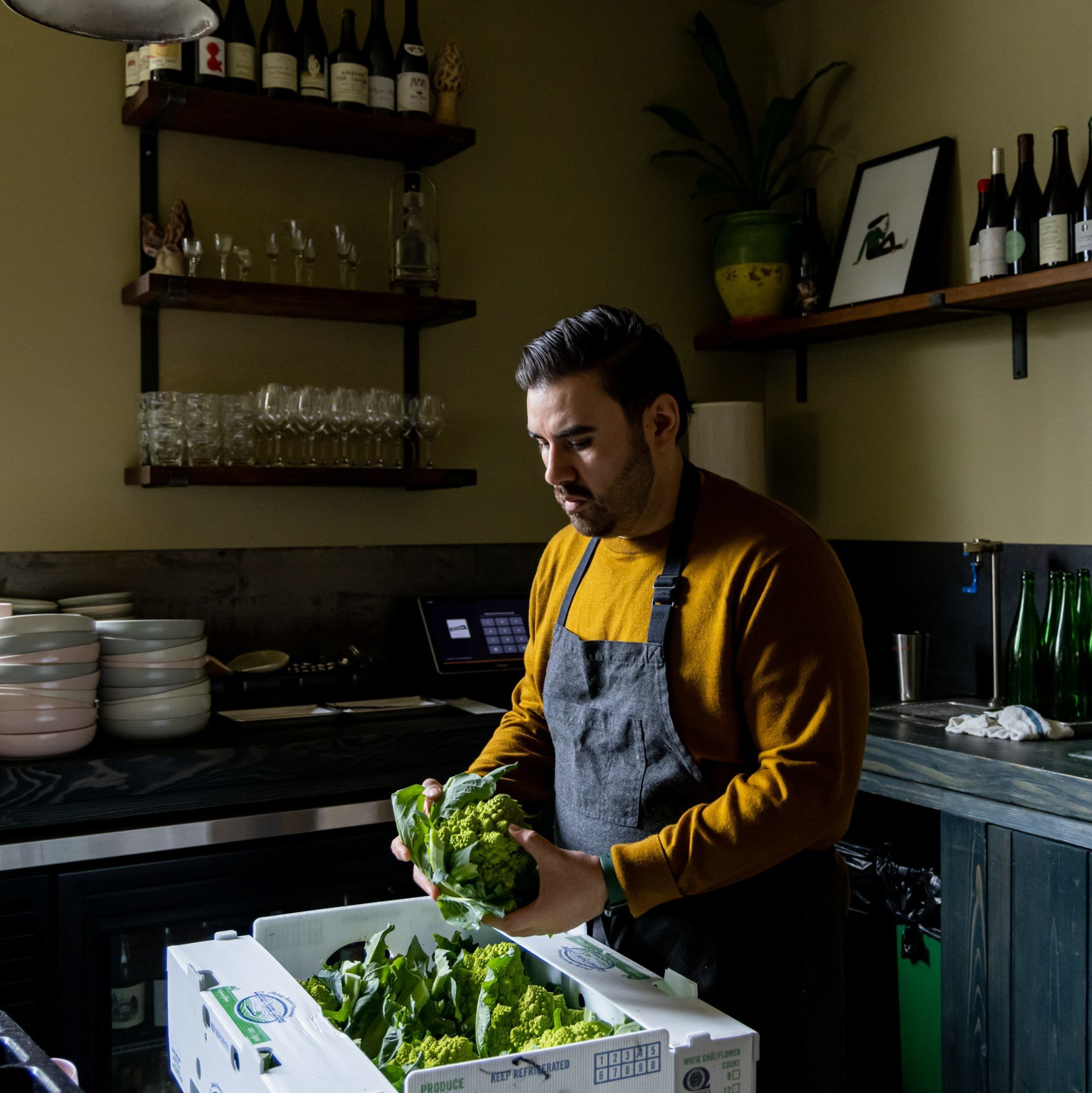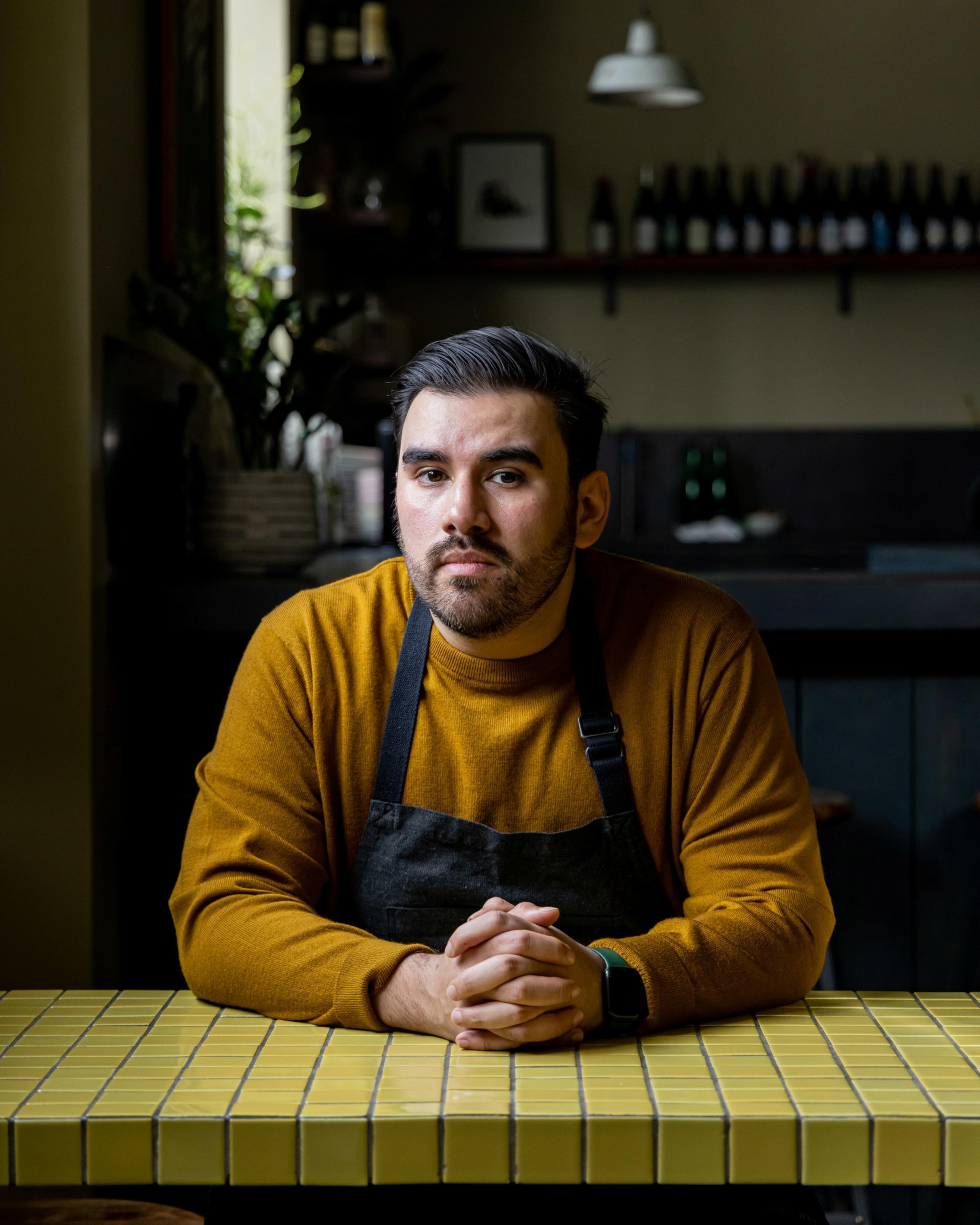Cindy Race, a private chef for the Silicon Valley elite, remembers the moment she realized the absurdity of her position. Shortly after she quit her restaurant job to cook for a wealthy family, she witnessed a personal assistant — one of her new colleagues — wrestling with a dog to brush its teeth with chicken-flavored toothpaste.
“I thought, ‘I haven’t seen that one before,’” Race said.
It was a fitting welcome to the world of private cheffing in Silicon Valley, where no request is too fussy, expensive, or bizarre. In exchange, chefs can make more than $225,000 a year, much more than they’d earn in a restaurant kitchen, plus benefits.
But as interviews with seven chefs attest, the demands of feeding tech industry royalty can go well beyond the pressure of a slammed dinner service. Many spoke on the condition of anonymity because of nondisclosure agreements and in order to share the full extent of their unhinged experiences.
The beverage perfectionists
One chef said a client loved the first sip of an ice-cold can of Coca-Cola. But just the first.
“They opened the Coke, took a sip of the Coke, put it down, and left,” the chef said. “Once they took a sip and put it down, they were done.”

That pattern would repeat three or four times daily, with the remainder of each soda ending up in the trash.
One household had a binder for every visitor, listing what they ate, what it should look like, caloric guidance, and allergy restrictions, along with details on how much of each ingredient should be included, down to the gram, a chef said.
Even something as simple as tea can be an ordeal. For one client, water had to be heated to 180 degrees, then cooled to 120 degrees before the tea was put in. The tea would be steeped for 3 minutes and 15 seconds and the cup cooled to 70 degrees for serving.
In addition to the demands, there’s the delicate dance involved in being a private chef: understanding when to be invisible but still present so you can respond to any need.
“I’ve been in a room with the entire family and nonexistent,” the Coca-Cola chef said. “I’ve been in a room where it’s the middle of a fucking screaming match. And they’re like, ‘What’s for dinner tonight?’ And somebody’s crying at the table.”
Once, a call came in from the client’s chief of staff with a serious grievance: the labels in the beverage fridge were not facing forward.
The last-minute mind-changer
A chef who works for a Bay Area family with an ultra-high net worth said appearances can be more important than the food itself. One former client, for example, wanted fresh fruit showcased around the home daily.
“I’d go to the farmers market every day, pick out stone fruit, citrus, apples, bananas, whatever. I’d display those throughout the house,” the chef said. “Sometimes it got eaten, sometimes it didn’t. The level of waste in the private world is pretty extravagant.”

Most chefs working in Silicon Valley households have Michelin-level experience and shifted to private work to escape the grind of restaurant life. But being subject to the whims of incredibly finicky individuals is its own burden.
“You have to be on 24/7. You have to perform, and you’re not just a chef — some houses, you’re the chef, the butler, the barista, the bartender, the driver, you name it.”
In the technocratic world of Silicon Valley, many clients are obsessed with measurement and optimization. One chef has been accused of “gaslighting” clients, adding sugar to meals when there was none present.
One of the biggest frustrations is indecisiveness. This chef said a client would list her menu preferences and receive a rundown of dishes weekly or even daily. But 30 minutes before dinnertime, she would say she no longer felt like eating salmon and would prefer chicken.
“You cannot say no,” the chef said. “You’re at the whim of the principal. I’d prepare three different proteins and stock my fridge with various vegetables if she did change her mind. Sometimes chefs are also feeding the staff or yourself, so you can repurpose it in another meal.”
But the tradeoff is worth it: Besides the high pay, there are two days off per week and better work-life balance than at restaurants. And this chef felt well-treated by most clients, despite their fickle or exacting demands.
Tomatoes in January? Never!
Private chefs’ clients are hyper-discerning. For example, some refuse to eat tomatoes outside of peak summer season.
“Interacting with a high-net-worth client is an art in and of itself,” Race said.
After three decades in the private chef game, Race and two partners this year started a placement agency called Private Chef Enterprises.
The company runs a five-day training program for aspiring private chefs, at a cost of $4,000. Lessons include how to craft an elevator pitch, a 90-second rundown of the chef’s skills to present to a potential client or, more likely, their assistant.
“Being a great private chef is mind-reading,” Race said. A chef should be able to intuit what clients may or may not wish to eat based on recent travels. “They’ve been in Tuscany recently, so you’re not going to serve Italian food tonight,” she said.
Samantha Greenwood, one of Race’s business partners, has worked with Chez Panisse’s Alice Waters for decades. Greenwood said wealthy Bay Area clients often have second homes in Malibu, “and they’re bummed that Erewhon’s not up here,” referring to the upscale supermarket chain known for selling $20 smoothies with names like “Hailey Bieber’s Strawberry Glaze Skin (opens in new tab).”
First clean, then cook
Robert Hernandez, the executive chef at Bar Jabroni in the Lower Haight, has established a list of boundaries for private dinners in family homes. He sends prospective clients a price list and “regulations,” outlining, for example, how many servers he will need for the evening.
“I’ve worked with people who tried to hand me their gum. They’re like, ‘Throw that away.’ And I’m like, ‘The trash can is over there,’” Hernandez said. “I have a fine line. We are not the help. You’re paying me for a service.”

Hernandez recently turned down a couple he had cooked for once before because the kitchen was dirty when he arrived. “All their leftovers were out. They weren’t prepared for me and expected me to clean the kitchen before I started.”
Stranded in paradise
In the early 2010s, Gabriel Cole briefly cooked for wealthy families in the Bay Area. Cole, who went on to run Airbnb’s global food program and start a corporate catering company, loved the pay and mostly enjoyed his clients.
But one experience soured him from working as a private chef ever again.
A family flew him to Hawaii for a five-day trial run. His flight was delayed by six hours, but he still cooked them dinner after landing late. “As I was cleaning up, we were talking about the next day, and the mom was like, ‘You should just sleep in; don’t worry about breakfast tomorrow.’ ’”
At 5:30 a.m., he woke to the husband banging on his door and telling him to pack his bags. “He said I should’ve been up at 5:30 to squeeze them juices, and it was unacceptable,” Cole said.
The family kicked him out of the hotel and left him effectively stranded.
“I didn’t have enough money to change my ticket home. I didn’t have anywhere to stay,” Cole said. “Luckily, his wife felt bad and came and brought me more money.”
“That was it,” Cole said. He hasn’t looked back since.
